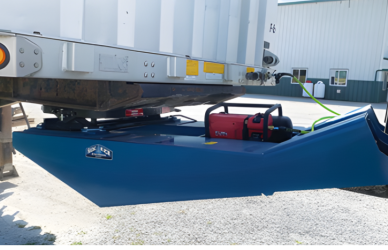The trucking industry has been the backbone of the American economy, facilitating the movement of goods and services across the country. From its humble beginnings to the advanced logistics network we see today, the history of US trucking is rich with significant milestones. This blog explores these key events and their impact on the industry.
The Early Days: 1890s – 1920s
The Advent of Motor Trucks
The late 19th century marked the birth of the motor truck. In 1896, the first truck was designed by Gottlieb Daimler, featuring a four-horsepower engine and a belt drive system. This invention laid the groundwork for future developments in the trucking industry.
The Establishment of Trucking Companies
The early 1900s saw the formation of the first trucking companies. By 1904, there were around 700 trucks in operation in the United States. The rapid expansion of the trucking industry was facilitated by the increased demand for efficient transportation of goods.
The Impact of World War I
World War I played a crucial role in the development of the trucking industry. The need for reliable transportation of military supplies highlighted the limitations of railroads and spurred the use of trucks. By the end of the war, trucks had proven their worth as a vital component of the transportation network.
The Growth Era: 1930s – 1950s
The Federal Aid Highway Act of 1956
One of the most significant milestones in US trucking history is the Federal Aid Highway Act of 1956. This act authorized the construction of the Interstate Highway System, a 41,000-mile network of roads designed to improve national defense and streamline interstate commerce. The new highways revolutionized the trucking industry by reducing travel time and increasing the efficiency of goods transportation.
The Introduction of Diesel Engines
The 1930s and 1940s saw the transition from gasoline-powered trucks to diesel engines. Diesel engines offered better fuel efficiency and longer engine life, making them more suitable for long-haul trucking. This transition marked a significant technological advancement in the industry.
The Regulatory Era: 1960s – 1980s
The Motor Carrier Act of 1980
The Motor Carrier Act of 1980 was a landmark piece of legislation that deregulated the trucking industry. This act reduced entry barriers and allowed more competition within the industry, leading to lower shipping costs and increased efficiency. Deregulation transformed the trucking landscape, making it more competitive and dynamic.
The Rise of Trucking Associations
During this period, various trucking associations were established to represent the interests of trucking companies and drivers. Organizations like the American Trucking Associations (ATA) played a pivotal role in advocating for industry-friendly policies and regulations.
The Modern Era: 1990s – Present
Technological Innovations
The late 20th and early 21st centuries have seen numerous technological advancements that have transformed the trucking industry. The adoption of GPS technology, electronic logging devices (ELDs), and advanced fleet management software has improved route planning, compliance, and operational efficiency.
Environmental Regulations
In recent years, there has been a significant push towards sustainability in the trucking industry. Stricter emissions regulations and the development of alternative fuel vehicles, such as electric and hydrogen-powered trucks, are paving the way for a greener future in trucking.
The Impact of E-commerce
The rise of e-commerce has had a profound impact on the trucking industry. The increasing demand for fast and reliable delivery services has driven innovation in logistics and supply chain management. Companies like Amazon have set new standards for delivery speed, pushing the industry towards greater efficiency.
The history of US trucking is marked by continuous innovation and adaptation. From the advent of motor trucks in the 1890s to the technological and regulatory changes of the modern era, the industry has evolved to meet the ever-changing demands of the economy. As we look to the future, the trucking industry will continue to play a crucial role in driving economic growth.











